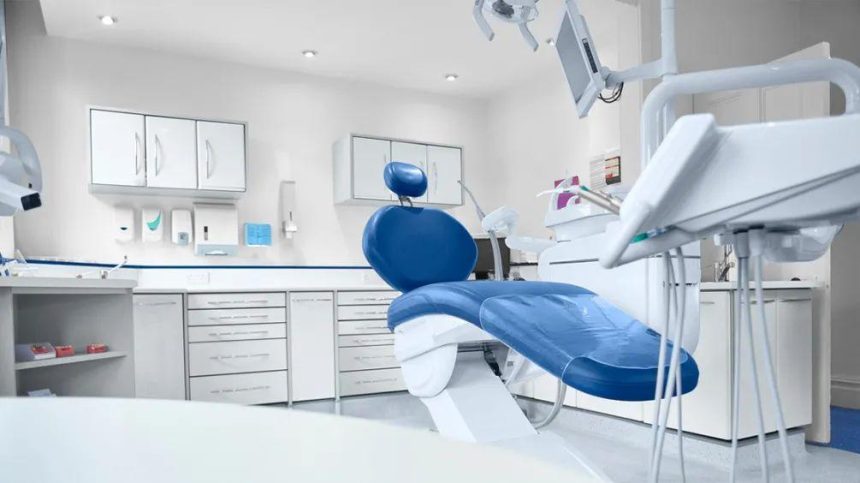A charming smile, they say, possesses the power to attract. The allure of a healthy, perfect set of teeth enhances this charm, adding an enchanting appeal to your persona. However, when dental issues arise, they spell trouble. Although not considered a disease, toothache can be truly excruciating when it strikes. It interferes with our daily eating and speaking habits and can dampen our mood, causing significant distress in our work and personal life. Particularly in the UK, such as Coventry and Leicester, numerous unhealthy eating habits threaten our teeth, such as indulging in overly sweet treats (British sweets can be cloyingly sweet) and drinking coffee, cola, and other beverages that can be harsh on our teeth. So, faced with many oral health problems, how should we see a Dentist in the UK? Let’s make this journey to oral health easy to navigate.

Classification of Dentists in the UK
In the UK, there are primarily two types of dental clinics. The first type is public dental services under the National Health Service (NHS), and the second is private dental clinics. In terms of cost, private dental clinics tend to be more expensive. As such, this discussion will primarily focus on NHS dental clinics. Most NHS dental clinics, except for those in some large hospitals and those for individuals under 18 years of age, which are free, require out-of-pocket payment.
How to find a nearby dental clinic in the UK
Public dentists, while part of the national NHS healthcare system, operate separately from General Practitioners (GPs). Thus, regardless of whether you are registered with a GP, you must register at your local dental clinic before accessing dental care. Post-registration, you can make an immediate appointment or book one over the phone. However, appointment times can vary greatly, from one day to a week to a month. A friend once complained about waiting as long as two months for an appointment. By the time their appointment arrived, their toothache had naturally healed.

I came across shocking news from The Times and The Guardian in the UK. Astonishingly, the most significant cause of death among Britons is queuing! Last year, 340,000 Britons died while waiting in line for medical treatment. The total number of deaths in the country was 540,000. The Times received responses to information requests from 83 out of 223 trust institutions, and this figure was compiled based on the data from these responses. According to the UK’s NHS free medical care regulations, patients should receive treatment within 18 weeks (126 days). In reality, 40% of people wait more than 18 weeks. 6% remain more than a year! Currently, 7.7 million people are queuing to see a doctor. If this situation continues, the number of people dying while waiting for a diagnosis this year is expected to exceed last year’s 340,000.

I have a friend studying in the UK. She said, “Getting medical treatment in the UK won’t bankrupt you, but it might break your spirit.” However, due to her meagre initial expectations, her high-frequency medical visits after arriving in the UK were slightly better than she had imagined. The best experiences were at walk-in centres and hospital emergencies, which solved the problem. The General Practitioners (GPs) came next. She has been on the waiting list for specialist appointments for three months and has not yet been scheduled. She estimates she will still be in the queue when she returns home and finishes consultations.
NHS Dental Charges
The UK’s National Health Service (NHS) has established a standardized dental charges system, offering affordable dental care services. The charge structure is divided into three bands:
Band 1: £23.80 covers an examination, diagnosis and advice. It also includes X-rays, a scale and polish, and planning for further treatment if necessary.
Band 2: £65.20 covers all treatments in Band 1, plus additional treatments like fillings, root canal work, or extractions.
Band 3: £282.80 covers all treatments in Band 1 and 2, plus more complex procedures such as crowns, dentures, and bridges.
Many people have found that after visiting an NHS dental clinic, they often wonder, “Why aren’t the dentist’s charges falling within the NHS Band system, and why are there almost always additional costs?” For instance, a friend needed a root canal treatment within Band 2. However, the dentist told her she needed to pay an additional £400 for the treatment, which was quite confusing. Based on everyone’s experience, NHS dentists tend to get by. They perform elementary and straightforward checks and treatments within the band services. Any further or more meticulous examination or treatment incurs an extra fee, including the somewhat ambiguous explanation about NHS dental charges on the official website. It only provides a rough idea. The phrase doctors often use during treatment is: “Your dental issues are more serious than imagined and have exceeded the scope of Band X, requiring an additional payment…!”

International Students’ Free Dental Care Certificate
For full-time students, there is a way to apply for free dental care: you need to obtain an HC2 Certificate. The specific method for obtaining this is to pick up an HC2 form from a nearby NHS service centre, school medical office, large Post Office, Boots branch, or dental clinic. After filling out the form with your information, please send it to the address provided on the form. When applying, include your bank statements and evidence of your student status. You will receive an HC2 Certificate from the NHS approximately one month later.
Then, log on to the NHS website and find a conveniently located dental practice that accepts new patients. After that, you can take your HC2 Certificate to the practice and undertake the registration process. If you have dental issues in the future, you can make a phone appointment; if it’s an emergency, no appointment is necessary.
With this certificate, you can enjoy free dental treatments from Band 1 to Band 3 at NHS public dental clinics, and you can even apply for a refund for previous dental fees. However, remember, the HC2 certificate only applies to NHS public dental clinics; if you choose a private dentist in the UK, you must pay the costs yourself.

See a dentist in Sheffield, York and Bradford.
The dental experience can differ significantly between cities such as Sheffield, York, and Bradford due to local demographics, dental practices, and healthcare policies. In Sheffield, known for its leading role in medical innovation, cutting-edge technology is used in dental procedures, ensuring a highly advanced and efficient service. York, a city steeped in history and tradition, may offer a more personalized and patient-centric approach, reflecting the close-knit community spirit. Meanwhile, in Bradford, a city with a diverse population, dentists might be particularly well-versed in addressing various dental issues in different ethnic communities. Researching and choosing a dental practice that aligns with your specific needs and expectations is essential.

For international students, navigating the dental care system in the UK can be pretty challenging. Instead of stressing over finding a dentist, a better alternative may be to limit your consumption of sweets, particularly those found in the UK. Regular intake of vitamin and calcium-rich foods can help improve issues such as gum bleeding and loose teeth, which are often caused by a deficiency of Vitamin C. Calcium helps strengthen teeth and reduce cavities. It’s crucial to brush daily and floss after brushing to clear out food debris lodged between the teeth, thus preventing bacterial decay. Regular oral examinations are recommended, ideally, a comprehensive oral check-up once a year to nip any potential oral problems in the bud.
Look at the blogs for advice on UK living experiences and student accommodation in the UK.







